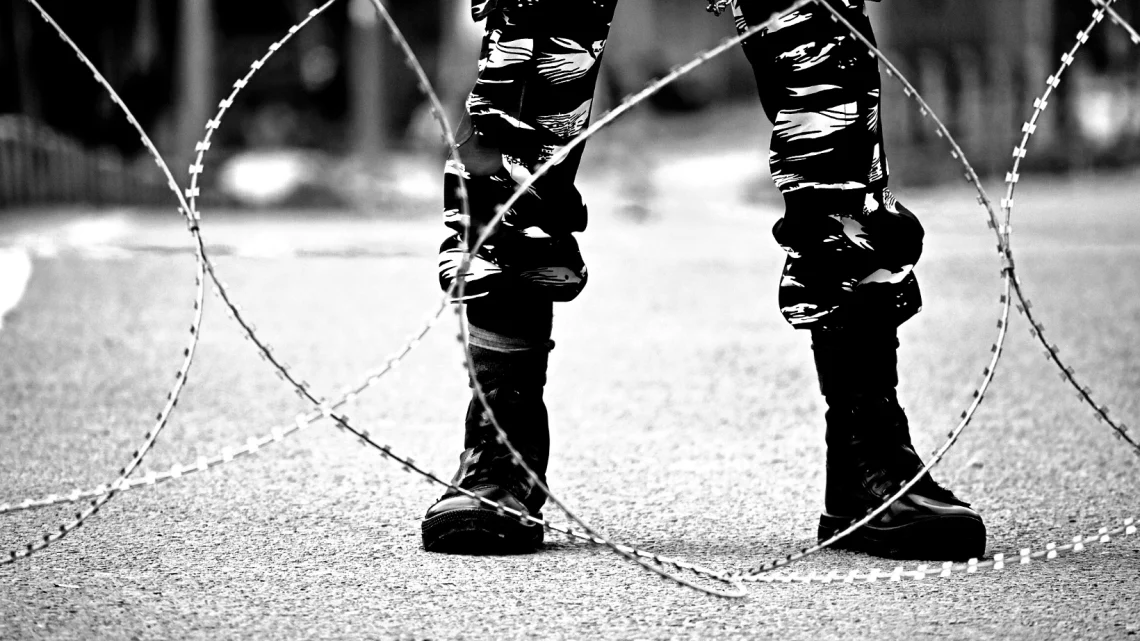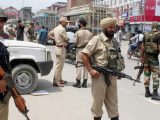
The Dark Shadows of Repression Cast over IIOJK Elections: Amnesty International
September 19, 2024The first phase of elections in Jammu and Kashmir, a region under Indian illegal occupation, took place amid reports of significant repression. Amnesty International has urged New Delhi to halt the detention of dissenters.
Aakar Patel, chair of Amnesty India’s board, emphasized that authorities must stop using harsh travel bans and arbitrary detentions to silence critical voices. These elections are the first since the Modi government revoked Jammu and Kashmir’s special status in 2019.
Amnesty highlighted that the government’s escalating human rights abuses began after this revocation. Arbitrary detentions have become common, along with the cancellation of travel documents for those opposing the government.
The organization pointed out that dissenters face severe restrictions, including revoked passports and mysterious ‘no-fly lists’. Critics struggle to travel freely or even return to India, impacting their ability to express dissent.
Patel insisted that the Indian government must end its campaign of intimidation against those who dare to voice their opinions. Since the abrogation of Article 370, Amnesty has verified cases of individuals barred from traveling despite holding valid documents.
The Indian authorities are accused of misusing the draconian Public Safety Act, which permits detention without charge, and the Unlawful Activities (Prevention) Act (UAPA) to suppress dissent.
Amnesty documented several troubling incidents, including delayed passport issuances and revocations. Kashmiri photojournalist Masarrat Zahra, studying in the U.S., finds herself stuck, unable to travel due to a revoked passport.
Zahra explained her predicament, stating, “I cannot leave the United States, nor can I return to India.” This situation has forced her to self-censor her expressions on social media.
Waheed Para, a political figure linked to the opposition party PDP, was accused of posing a “threat to state security” and had his passport revoked before a planned fellowship in the U.S.
Nitasha Kaul, a British-Indian professor, faced entry denial into India despite holding a UK passport. Her testimony before the U.S. House Committee on Foreign Affairs highlighted the human rights situation in Jammu and Kashmir.
In June, Indian authorities arrested Mian Abdul Qayoom, the ex-president of the Jammu & Kashmir Court Bar Association, for speaking out against human rights violations. By July 2024, three more lawyers faced similar fates.
Statistics from the National Crime Record Bureau revealed that almost 37% of UAPA cases in India originated from Jammu and Kashmir. This highlights the extent of state repression in the region.
Khurram Parvez, a coordinator with the Jammu & Kashmir Coalition of Civil Society, and journalist Irfan Mehraj remain detained since 2021 and 2023, respectively. Their cases underscore the ongoing crackdown on dissent.
Since the revocation of Article 370, the Indian government has also targeted officials in Jammu and Kashmir for holding dissenting views. Reports indicate at least 40 government employees were terminated without fair appeal.
The lieutenant governor of the region has recently gained sweeping control over governance, further threatening human rights. This consolidation of power raises concerns over the future of democratic processes in the region.
Patel asserted that the first step to ending this repression is to release all individuals detained under the Public Safety Act and UAPA. These detentions are mere attempts to suppress freedom of expression.
As elections unfold in Jammu and Kashmir, the shadows of repression loom large, casting doubt on their legitimacy and the future of human rights in the region.

